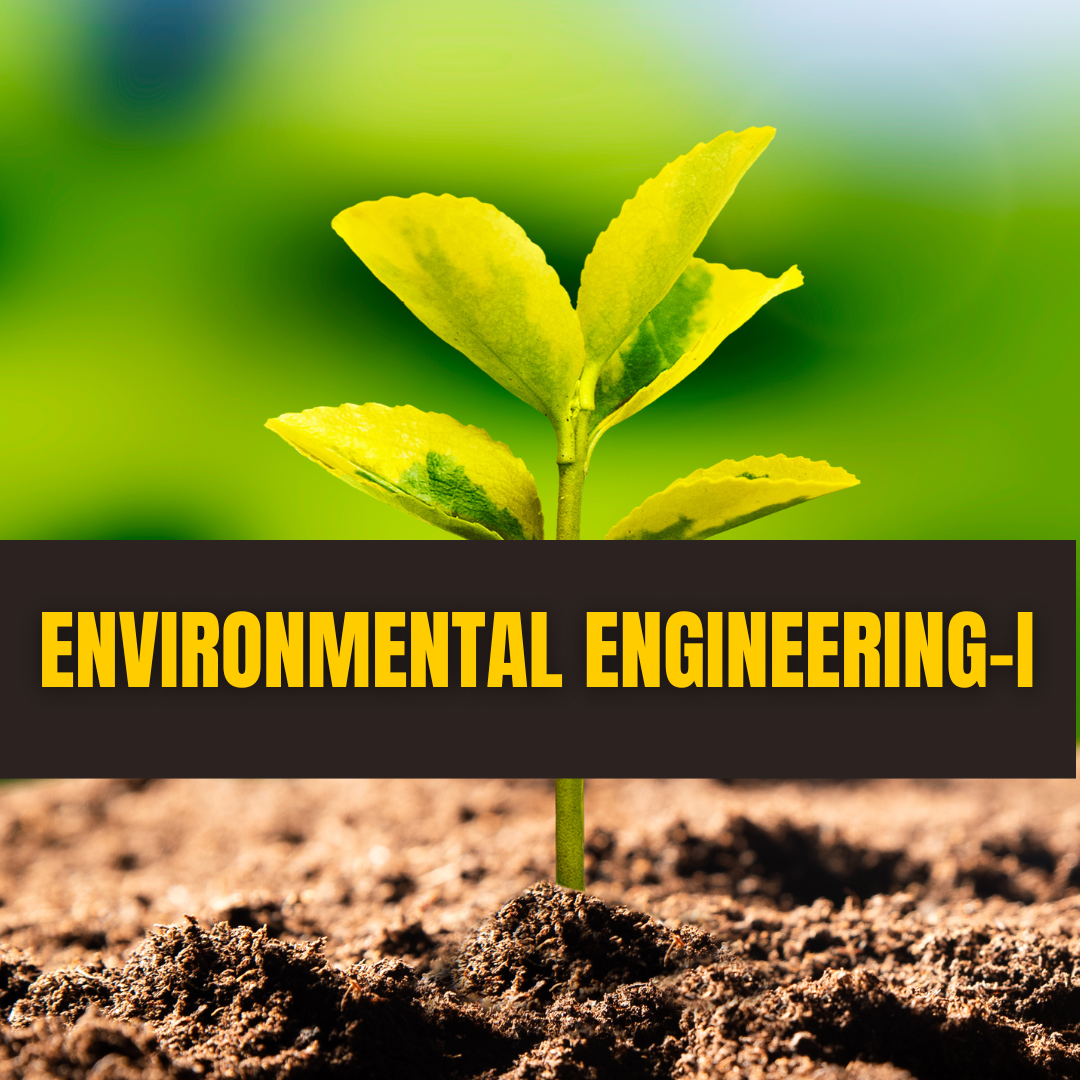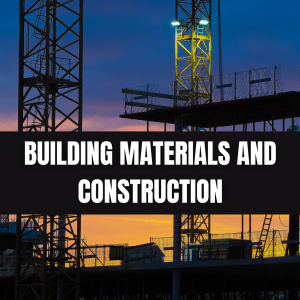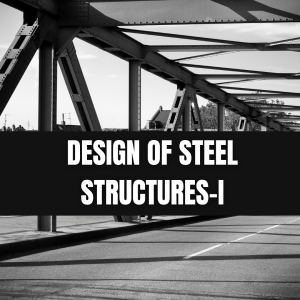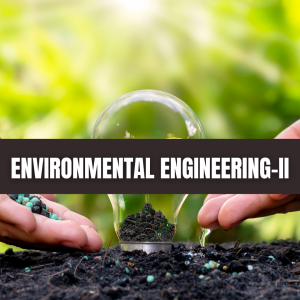Environmental Engineering
13.98$
About the course
Environmental Engineering is about the integration of Science and Engineering Principles to improve the natural environment, to provide healthy water, air, and land for human habitation and to clean up pollution sites. The course deals with Water Demand, Sources of Water, Pump and Pumping System, Transportation of Water, Water Treatment, Filtration, Water Softening, Storage and Distribution of Water, Sewerage Systems etc.
What will you learn?
The complete online syllabus of this course comprises 4 Learning Modules | 128 Topics of Learning | 5 Hours of Learning | 39 Assessments
Module
- Water Supply and Sources of Water
- Water Transmission Systems
- Characteristics and Purification of Water
- Storage Systems for Water, Rural Supply of Water and Sewer Systems
Topics of Learning
- Various types of water demand
- Assessment in Normal Variation
- Per capita demand
- Factors affecting per capita demand
- Variation in Demand
- Assessment in normal variation
- Effects of variation on demand
- Design period
- Factors affecting the design period
- Logistic curve
- Logistic curve method
- Various other methods
- Kind of water sources
- Characteristic of various water sources
- Collection of surface and groundwater
- Quality of surface and groundwater
- Factors affecting the selection of a source of water supply
- Types of intake
- design for lakes, streams and river
- Definition of impounding reservoir
- Types of dam
- Storage capacity of a reservoir
- Types of pump
- Factors affecting the selection of a pump
- Centrifugal pumps
- Types of centrifugal pumps
- Characteristic curve and efficiencies
- Advantages and disadvantages of centrifugal pumps
- Displacement pumps
- Efficiency of a pump
- Plumbing systems in water supplies
- House water connection, Stop cocks
- Water taps, Bib cocks, Pipe fitting
- Pipe materials
- Water hammer and control measures
- Physical characteristics; Measurement and standards
- Chemical characteristics; Measurement and standards
- Biological characteristics; Measurement and standards
- Hardness of water and types of hardness
- Measurement of Hardness
- Alkalinity
- Measurement of Alkalinity
- Redox reactions,acid-base dissociation,N,C,P cycles
- Biological process: aerobic and anaerobic process
- Screening: types
- Plain sedimentation
- Theory of sedimentation
- Types of sedimentation tanks
- Design concepts in plain sedimentation tanks
- Design examples
- Sedimentation aided with coagulation
- Analysis of flocculent settling
- Chemicals used for coagulation
- Comparison of alum and iron salts
- Design criteria
- Slow sand filters
- Rate of filtration and efficiency
- Construction of the rapid gravity filter
- Cleaning of rapid gravity filters
- Rate of filtration and efficiency
- Design of filtering sand media
- Initial loss of head in filter bed
- Hydraulic head loss
- Expansion of filter bed during backwash
- Pressure filters: construction
- Working and operation of pressure filters
- Clorination
- Disinfecting action of chlorine
- Various forms and doses of chlorine
- Disinfecting action: UV radiation,Ozone,Silver
- Disinfecting action:pottasium permaganate, hydrogen peroxide
- Methods of removing temporary hardness
- Methods of removing permanent hardness
- Desalination by evaporation and distillation
- Electro dialysis; Reverse osmosis
- Freezing Process
- Removal absorption by activated alumina
- Ion exchange method
- Nalgonda technique
- Reverse osmosis process; Flouride in India
- Plant layout
- Requirements of a good distribution system
- Layout of a distribution network
- Pressure and gravity distribution systems
- Distribution reservoir
- Types of distribution reservoir
- Pipe network
- Equivalent pipe method
- Principles of rural water supply
- Selection of source
- Rain water harvesting
- Low cost treatment techniques
- Systems of sanitation and waste water collection
- Estimation of waste water flows
- Estimation of storm water by different formulae
- Types of sewer
- Material used; Joints,appurtenances
- Layout and construction of sewer lines
- Flow in full sewer
- Flow in partial full sewer
- Design of sewer
- Small-bore sewer systems
- Planning of sewerage systems
- Institutional wastewater management
- Industrial wastewater management
For a quick review, please watch our videos here 




